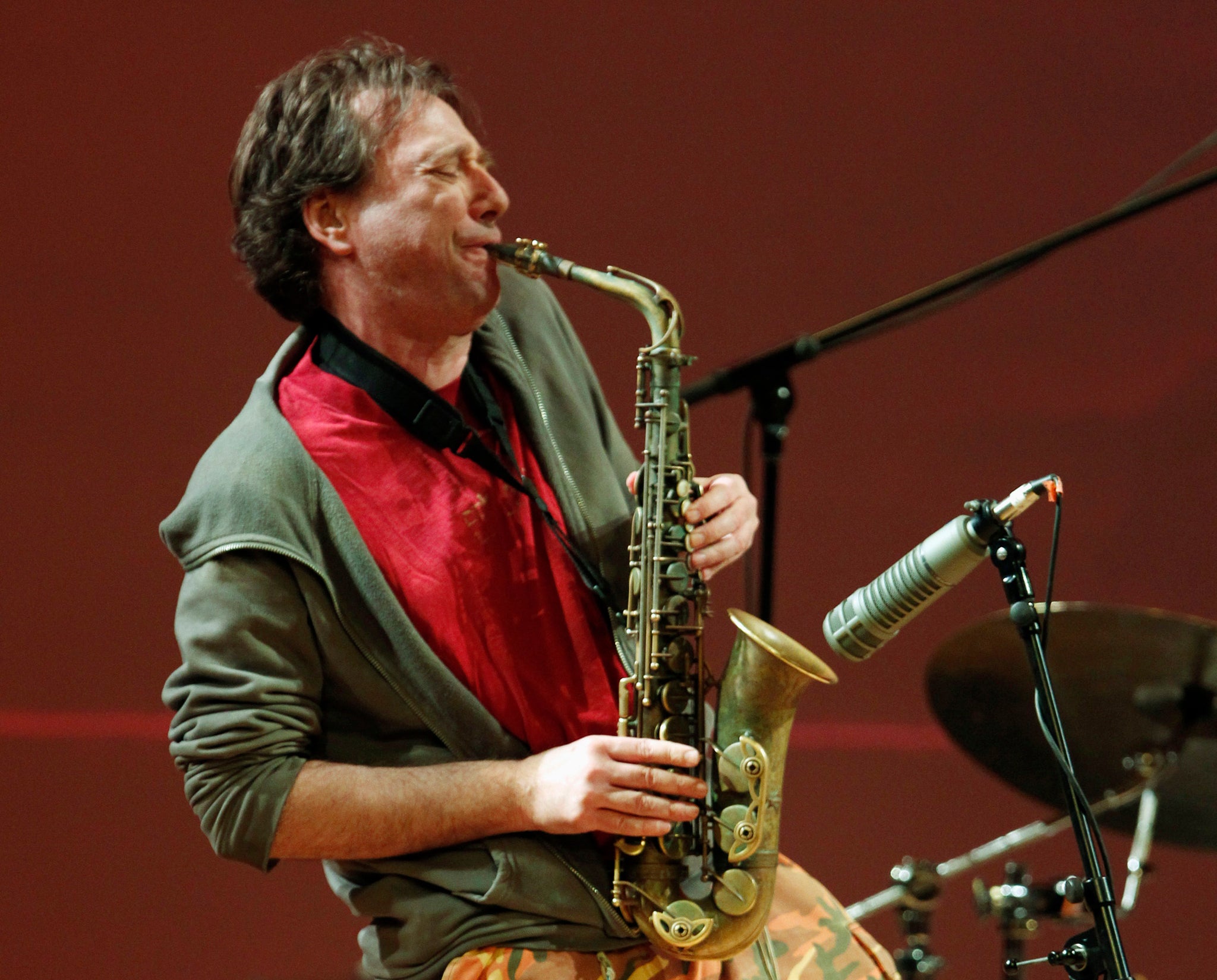
Your support helps us to tell the story
From reproductive rights to climate change to Big Tech, The Independent is on the ground when the story is developing. Whether it's investigating the financials of Elon Musk's pro-Trump PAC or producing our latest documentary, 'The A Word', which shines a light on the American women fighting for reproductive rights, we know how important it is to parse out the facts from the messaging.
At such a critical moment in US history, we need reporters on the ground. Your donation allows us to keep sending journalists to speak to both sides of the story.
The Independent is trusted by Americans across the entire political spectrum. And unlike many other quality news outlets, we choose not to lock Americans out of our reporting and analysis with paywalls. We believe quality journalism should be available to everyone, paid for by those who can afford it.
Your support makes all the difference.John Zorn is the prodigious exemplar of downtown New York’s avant-garde. He’s the most uncategorisable of the musicians who made their way during the city’s economically bankrupt, artistically rich 1970s, sharing the era’s punk spirit, but applying it over subsequent decades to classical music, free jazz, thrash-metal, klezmer, and anything else his generous, fierce and obsessive mind alighted on.
It’s typical of this impatiently creative man that this celebration of him turning sixty is happening when he’s 59 (the birthday isn’t till September). The seven sections of this three-hour, multi-band show give a fair taste of his broad but consistent vision.
You don’t often see someone conducting throat-shredding screams, but Zorn loves pushing the human voice to its limit. When I saw his thrash-jazz band Naked City in New York in 1990, Japan’s Yamatsuka Eye was the scream soloist; here, it’s ex-Faith 'No More' singer Mike Patton. He rests in a simian hunch between eruptions, burly and impressive in his own right. Zorn, looking like an ageing urban goblin in hoodie and camouflage trousers, capers delightedly. Patton is playing the part of a 14th century warrior monk, growling of “spilt blood” in a piece inspired by the Templars.
This links it conceptually to the utterly different sound-world of 'The Holy Visions', an a cappella Latin work for five female voices inspired by 12-century composer-mystic Hildegard von Bingen. This is the most outré work of the night, breaking furthest from the contexts in which Zorn is usually understood. The singers act like Macbeth witches by way of a Mario Bava horror film. Switch your attention from this to 'The Alchemist', a beautiful piece for string quartet referencing another renegade mystic, John Dee, with its shivering pauses recalling Bernard Hermann’s Hitchcock soundtracks, and the thematic bonds between this wildly diverse music tighten.
It’s when Zorn takes up his sax and places himself at the music’s heart that his strengths and limitations become obvious. There’s a foursquare momentum that’s not as complex as it first sounds, for all its buzzing energy. But the eruptions of violent playing Zorn demands clearly exhilarate his musicians. Bassist Trevor Dunn is breathless between solos, yet looks like there’s nowhere else he’d rather be. Intensity, whether of beauty or aggression, is all. “Thank you! 60!” Zorn yelps near the end. Sixty not out, certainly.
Join our commenting forum
Join thought-provoking conversations, follow other Independent readers and see their replies
Comments